
Mango: The Hidden Gem of Togo
Mango is a charming town in the northern part of Togo, known for its serene environment and friendly locals. This off-the-beaten-path destination offers visitors a unique opportunity to experience the authentic Togolese culture away from the bustling cities. Located near the Oti River, Mango provides picturesque landscapes perfect for nature lovers. The river is an ideal spot for leisurely boat rides, bird watching, and fishing. The surrounding savannah and forested areas are home to diverse wildlife, making it a great place for eco-tourism. The local markets in Mango offer a vibrant experience where you can find handmade crafts, traditional fabrics, and fresh produce. Don't miss the chance to try local delicacies, such as the famous Togolese grilled chicken and spicy peanut sauce. Mango's warm and welcoming atmosphere ensures that every visitor leaves with unforgettable memories.
Local tips in Mango
- Visit the local markets early in the morning to get the freshest produce and best deals.
- Carry mosquito repellent, especially if you plan to explore the river and surrounding areas.
- Respect local customs and dress modestly when visiting religious sites and local communities.
- Hire a local guide for wildlife tours to enhance your experience and ensure safety.
- Learn a few basic phrases in French, the official language, to communicate more easily with locals.
Mango: The Hidden Gem of Togo
Mango is a charming town in the northern part of Togo, known for its serene environment and friendly locals. This off-the-beaten-path destination offers visitors a unique opportunity to experience the authentic Togolese culture away from the bustling cities. Located near the Oti River, Mango provides picturesque landscapes perfect for nature lovers. The river is an ideal spot for leisurely boat rides, bird watching, and fishing. The surrounding savannah and forested areas are home to diverse wildlife, making it a great place for eco-tourism. The local markets in Mango offer a vibrant experience where you can find handmade crafts, traditional fabrics, and fresh produce. Don't miss the chance to try local delicacies, such as the famous Togolese grilled chicken and spicy peanut sauce. Mango's warm and welcoming atmosphere ensures that every visitor leaves with unforgettable memories.
When is the best time to go to Mango?
Iconic landmarks you can’t miss
Monument de l'independance
Discover the Monument de l'Indépendance in Lomé, a cultural landmark symbolizing Togo's quest for freedom and a reflection of its rich heritage.
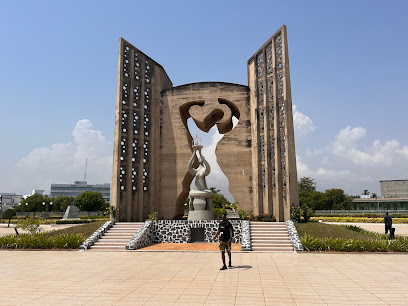
Akodessewa Fetish Market
Discover the vibrant Akodessewa Fetish Market in Lomé, a hub of traditional artifacts, voodoo culture, and unique crafts, offering an authentic Togolese experience.
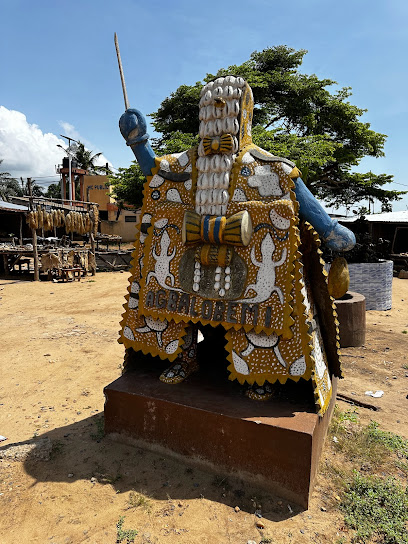
Palais de Lomé
Explore the grandeur of Togo's past at Palais de Lomé, a historical landmark showcasing the beauty and culture of Lomé.
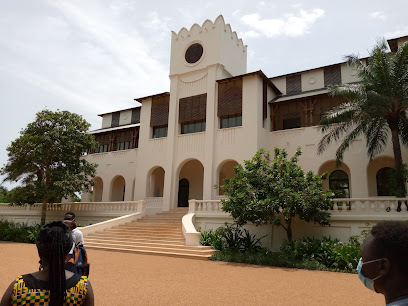
TATA PARK
Experience joy and excitement at TATA PARK in Lomé, Togo, where thrilling rides and family-friendly attractions await every visitor.
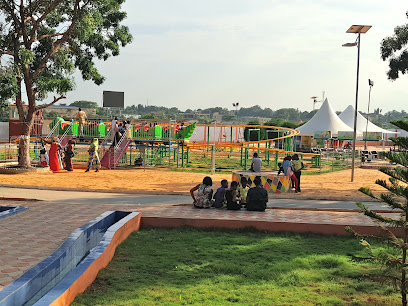
Fauna Cultura
Explore Fauna Cultura in Lomé, Togo—Your Gateway to Wildlife Conservation and Family Fun in a Stunning Natural Setting.
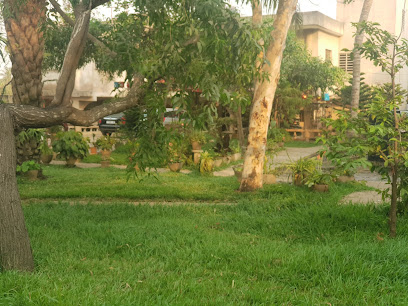
Cascade de Kpimé
Discover the enchanting beauty of Cascade de Kpimé, a breathtaking waterfall in Togo surrounded by lush nature and adventure opportunities.
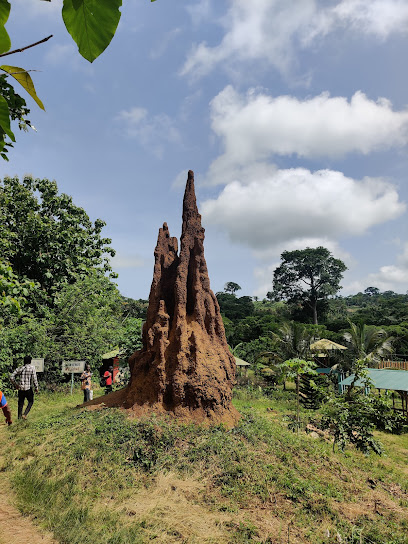
Lake Togo
Explore the serene beauty of Lake Togo, a nature lover's paradise offering vibrant culture, stunning views, and endless outdoor activities.
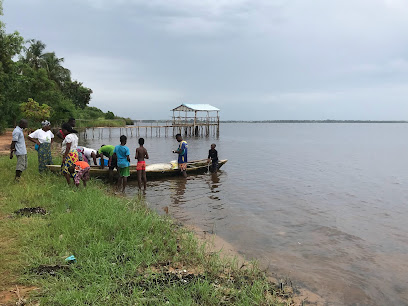
Centre Culturel Denyigba
Discover the vibrant cultural hub of Lomé at Centre Culturel Denyigba, where art, cuisine, and community come together in a unique Togolese experience.
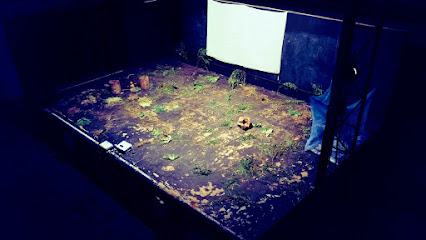
International Museum of the Gulf of Guinea
Explore the International Museum of the Gulf of Guinea in Lomé and delve into the captivating art and culture of West Africa's rich heritage.
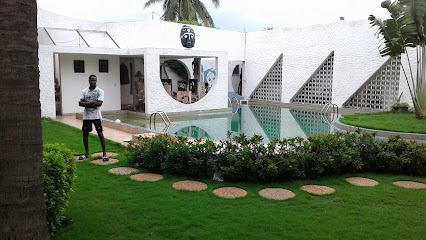
Riding Club Togo
Discover Riding Club Togo: A Unique Equestrian Experience in Lomé with Dining and Recreation for the Whole Family.
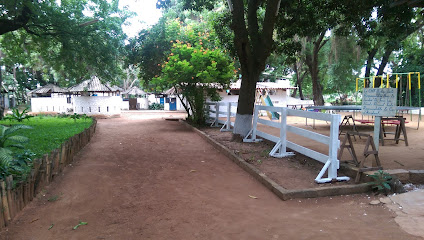
Faille d'Aledjo
Discover the breathtaking beauty of Faille d'Aledjo, a scenic gem in Togo offering stunning views and serene landscapes for nature enthusiasts and adventurers alike.
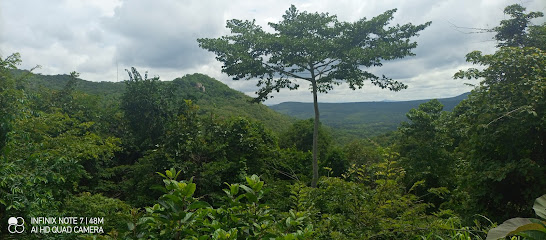
Cascade de Womé
Experience the breathtaking beauty of Cascade de Womé, a hidden gem in Kpalime, Togo, where nature meets serenity and adventure awaits.
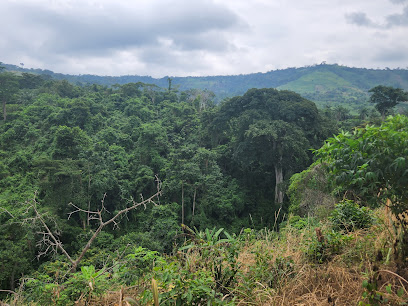
cascade de Yikpa
Explore the breathtaking Cascade de Yikpa in Likpe Bakwa, Ghana - a stunning waterfall surrounded by lush nature, perfect for relaxation and adventure.
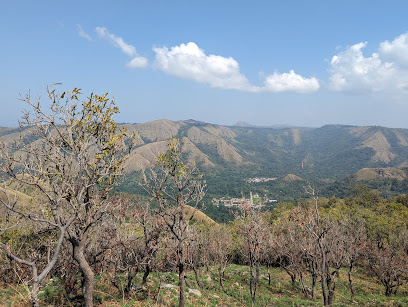
Koutammakou, the Land of the Batammariba
Discover the unique heritage of Koutammakou, the Land of the Batammariba, where traditional earthen architecture meets rich cultural traditions.
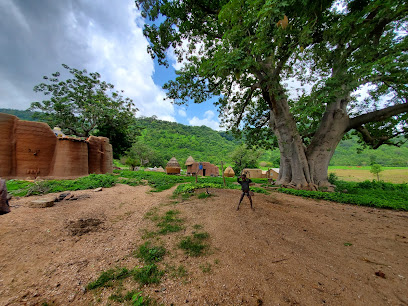
Hospital of Hope
Discover the heart of healthcare in Mango at the Hospital of Hope, a vital institution promoting wellness and resilience in Togo.
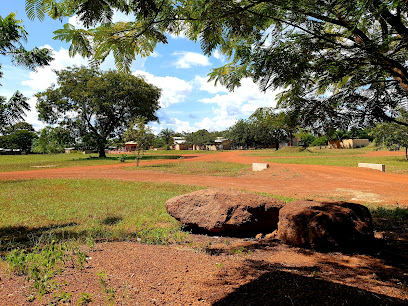
Unmissable attractions to see
Colombe De La Paix
Explore Colombe De La Paix in Lomé, Togo – a stunning historical landmark symbolizing peace, unity, and the rich cultural heritage of the region.
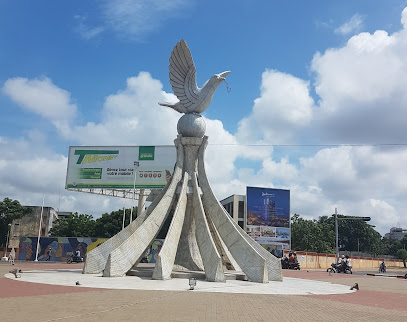
Akodessewa Fetish Market
Experience the unique cultural tapestry of Togo at Akodessewa Fetish Market, where tradition and artistry come alive in a vibrant marketplace.
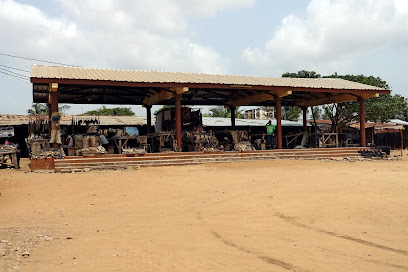
TATA PARK
Discover the excitement of TATA PARK in Lomé, where thrilling rides and family-friendly fun await every visitor.
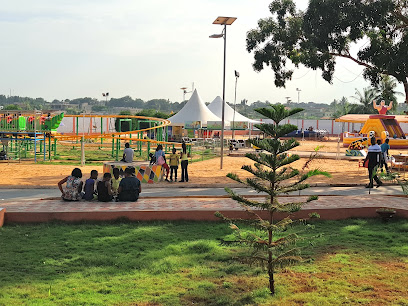
Fauna Cultura
Explore the vibrant and educational Fauna Cultura Zoo in Lomé, showcasing Togo's rich wildlife and commitment to conservation.
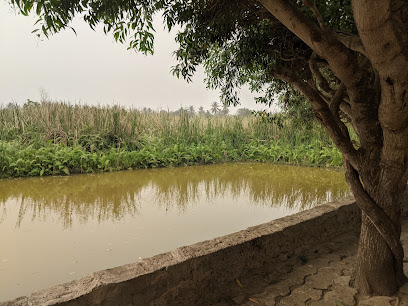
Cascade de Kpimé
Explore the picturesque Cascade de Kpimé in Togo—an enchanting waterfall surrounded by lush greenery and stunning landscapes that beckon adventure.
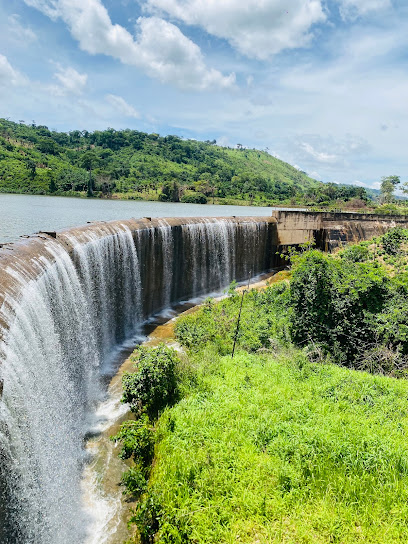
Grottes de Nok
Discover ancient history and stunning geological formations at the Grottes de Nok in Tandjouare, Togo, a must-see tourist attraction.
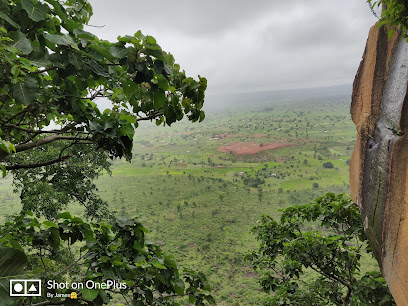
Djamdè Elephant Reserve
Discover the Djamdè Elephant Reserve, a sanctuary for Togo's last elephants, where wildlife conservation meets breathtaking natural beauty.
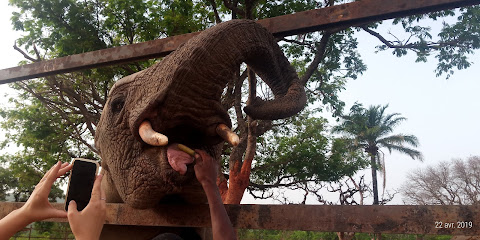
Koutammakou, the Land of the Batammariba
Experience the rich cultural heritage and stunning architecture of Koutammakou, the Land of the Batammariba, a UNESCO World Heritage site in Togo.
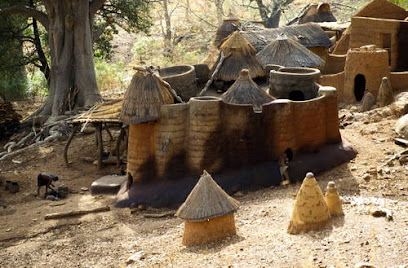
Nakpanduri Waterfalls
Experience the stunning Nakpanduri Waterfalls, a natural wonder in Ghana that captivates visitors with its breathtaking beauty and serene surroundings.
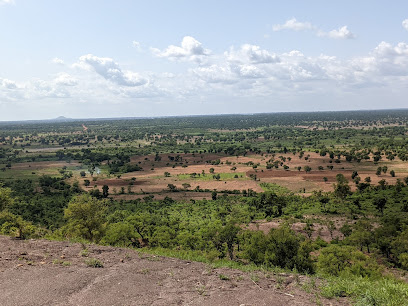
Lomɛ Me
Explore the breathtaking beauty of Lomé Me, a tranquil nature preserve in Kpalime, rich in diverse wildlife and lush landscapes.
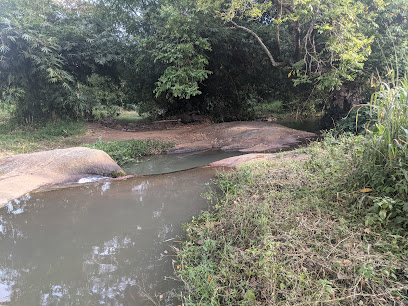
Cascade de Badoré
Explore the stunning Cascade de Badoré in Dapaong, Togo - a breathtaking natural attraction perfect for nature lovers and adventure seekers.
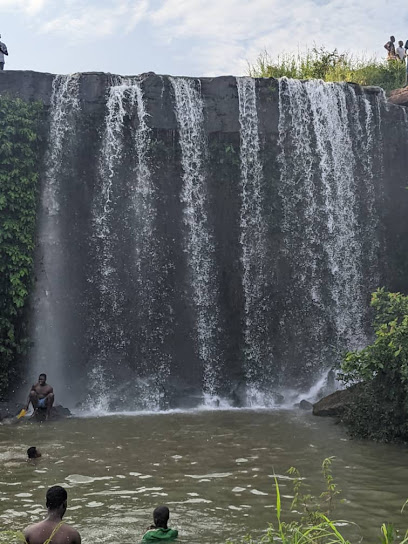
Kara
Explore Kara, Togo's hidden gem, a lively blend of culture, tradition, and breathtaking landscapes waiting to be discovered.
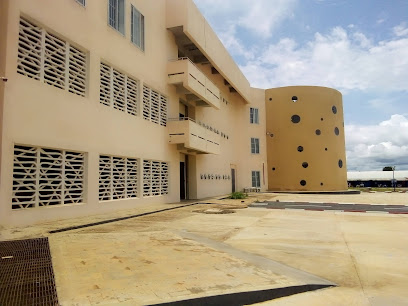
Nakpanduri waterfalls
Experience the breathtaking beauty of Nakpanduri Waterfalls in Ghana, a tranquil paradise perfect for nature lovers and adventure seekers alike.
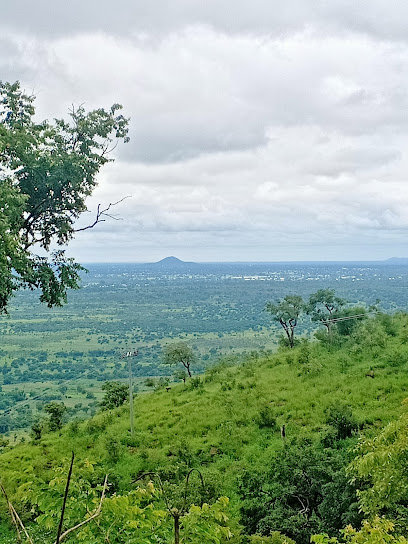
Fleuve Oti
Explore the serene beauty of Fleuve Oti, a perfect blend of nature and culture in Mango, Togo, ideal for relaxation and adventure.

Rond point ( grand carrefour) de Mango
Discover the vibrant heart of Mango at Rond Point, a cultural hub where tradition meets modernity in a bustling local atmosphere.
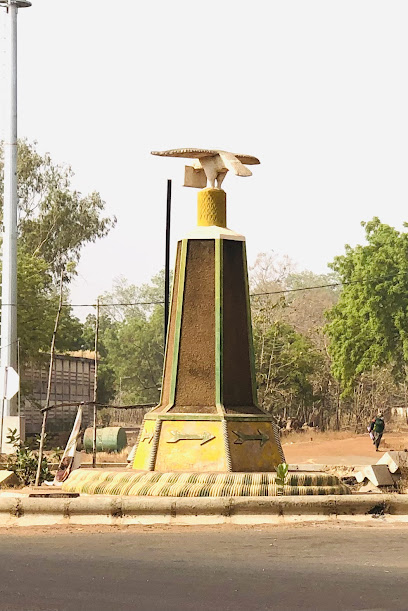
Essential places to dine
Le Phenicien
Experience the best of Lomé's culinary scene at Le Phenicien with delightful fast food, fresh pastries, and mouthwatering pizzas.
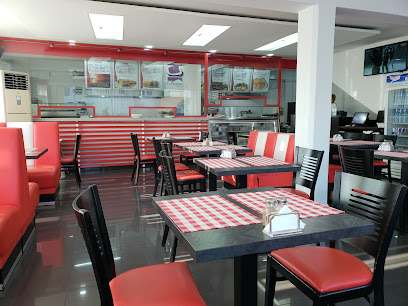
Blue Turtle Bay
Experience authentic Togolese cuisine at Blue Turtle Bay in Lomé - A culinary journey through vibrant flavors and warm hospitality.
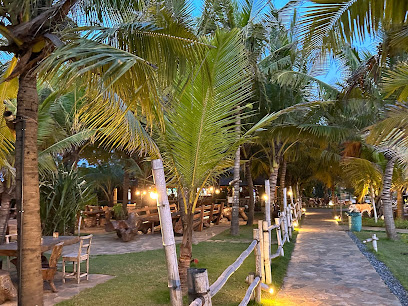
Le Beluga
Experience the best of Togolese and international cuisine at Le Beluga in Lomé—a culinary treasure waiting to be discovered.
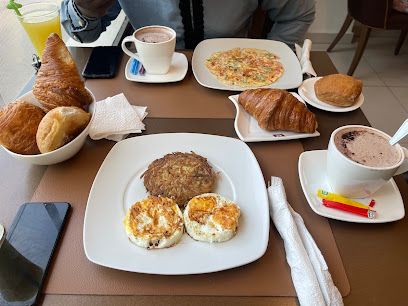
Alt Munchen
Experience authentic German cuisine at Alt Munchen in Lomé - where traditional flavors meet local hospitality.
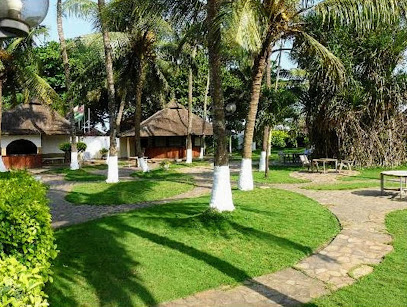
7SPICE
Experience authentic Indian cuisine at 7SPICE in Lomé, where every dish tells a story through rich flavors and aromatic spices.
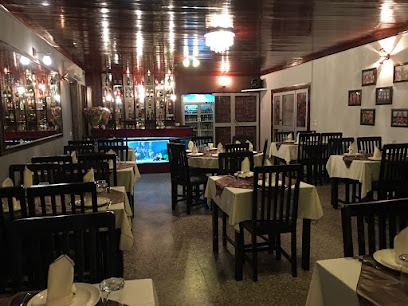
La route des vins
Discover La Route des Vins: A Culinary Journey Through Exquisite Wines and Local Flavors in Lomé.
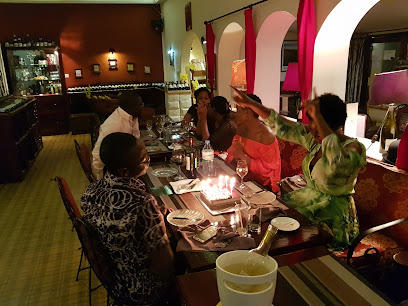
Les Nuits d’Orient
Discover authentic Togolese cuisine at Les Nuits d’Orient in Lomé - where every meal is a celebration of flavors.
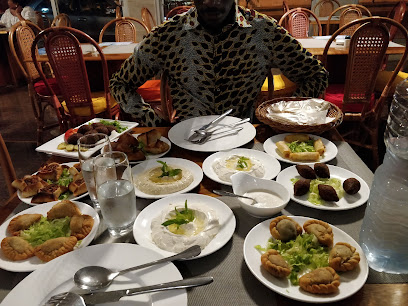
La Table Du DG
Experience authentic Togolese cuisine at La Table Du DG - where flavor meets culture in Lomé.
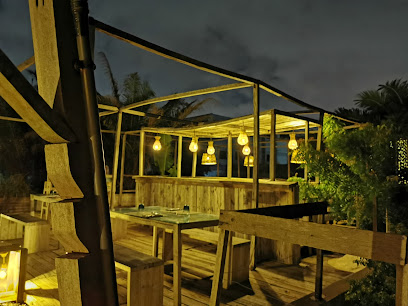
Ci Gusta Italian restaurant
Experience authentic Italian cuisine at Ci Gusta in Lomé - where every dish is crafted with passion and tradition.
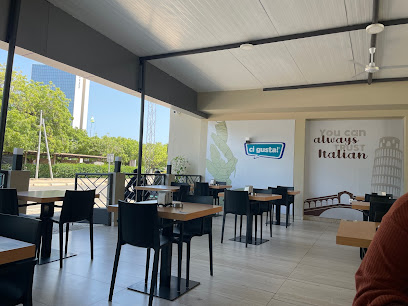
Le Philipat
Experience authentic Togolese cuisine at Le Philipat in Lomé - a culinary haven for travelers seeking local flavors.
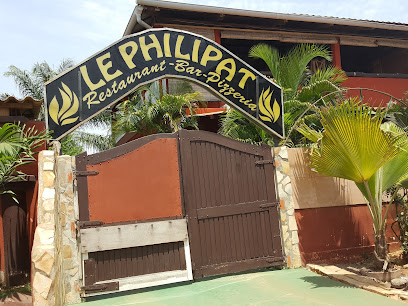
Restaurant La Bodega Lomé
Experience the vibrant flavors of Africa and France at Restaurant La Bodega Lomé - where family fun meets culinary excellence.
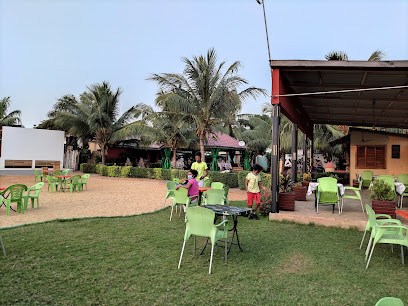
La Main à La Pâte
Savor authentic Togolese cuisine in a vibrant atmosphere at La Main à La Pâte in Lomé.
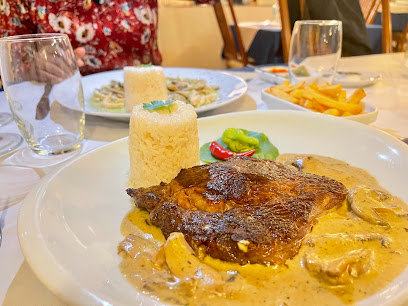
LA CASE DU CHEF
Discover the heart of Togolese cuisine at La Case du Chef in Lomé – where every meal tells a story.
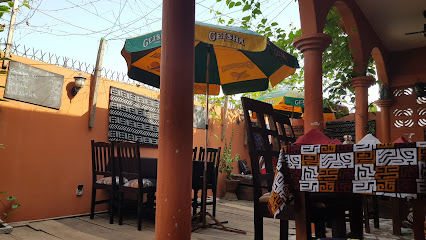
MAHARAJA
Discover the authentic taste of Togo at MAHARAJA - where local flavors meet exquisite culinary artistry.
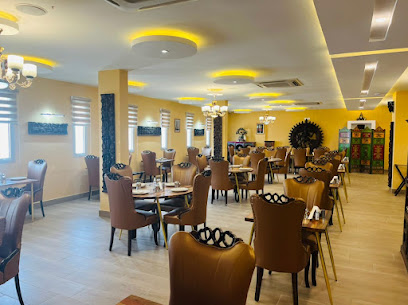
Restaurant La Terrazza Lomé
Experience the vibrant flavors of Africa at Restaurant La Terrazza Lomé – where culinary traditions meet modern flair.
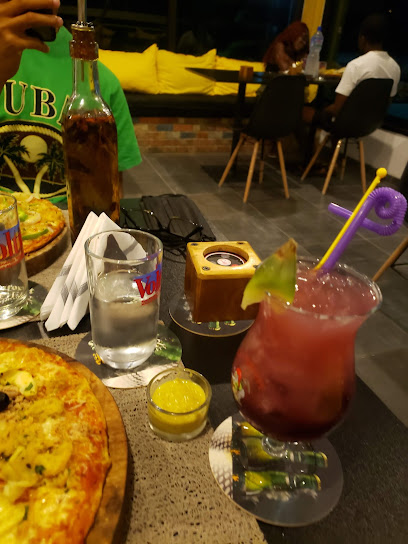
Markets, malls and hidden boutiques
Marche de Mango
Dive into the heart of Mango with a visit to Marche de Mango - a lively market experience filled with fresh produce, local crafts, and delicious street food.
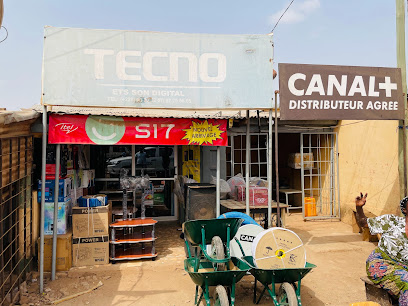
Nouveau marché de mango
Explore the lively Nouveau Marché de Mango, where vibrant culture meets local flavors and unique handmade crafts await discovery.
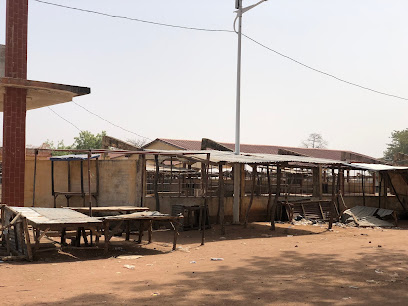
Togo Niger 2
Discover the vibrant shopping scene at Togo Niger 2, where local culture meets modern retail in the heart of Mango, Togo.
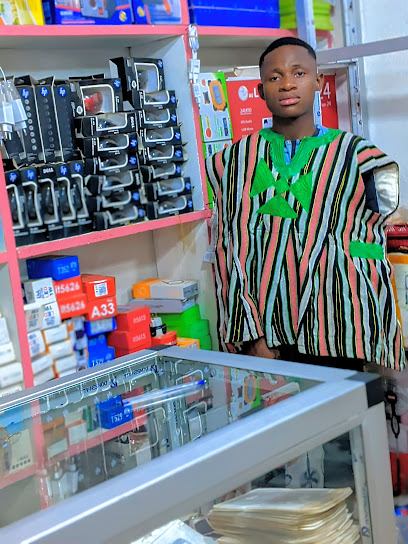
Ets Vidéo Monde
Discover Ets Vidéo Monde in Mango, your go-to cell phone store for the latest devices, accessories, and local mobile expertise.
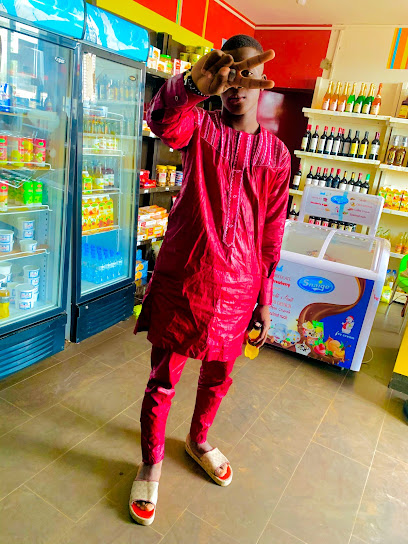
ELEGANCE SHOP
Explore Elegance Shop in Dapaong for unique Togolese fashion and handcrafted items that embody the rich culture and creativity of the region.

Cimao
Discover Cimao in Mango, Togo: A vibrant Chamber of Commerce blending local hardware supplies with a community spirit.
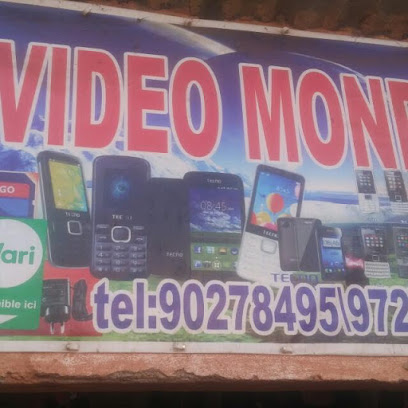
Rond point djabou
Discover the flavors of Mango at Rond Point Djabou, a bustling grocery store offering fresh produce and local delicacies in Togo.

Magasin de Nafboy le G-man
Explore the vibrant Magasin de Nafboy le G-man in Sansanné-Mango for authentic Togolese crafts, unique souvenirs, and a taste of local culture.

Abattoirs de Mango
Discover the vibrant flavors and local culture at Abattoirs de Mango, the heart of Mango’s culinary scene.

Mango-Togo
Discover the vibrant community spirit at Mango-Togo's post office, a vital hub for communication and a gateway to local culture.

Cap Mango
Discover Cap Mango, the ultimate convenience store in Mango, offering local snacks, essentials, and a taste of regional culture for every traveler.

Fanmilk
Discover the refreshing world of Fanmilk in Mango, where every scoop of ice cream is a taste of tropical delight.
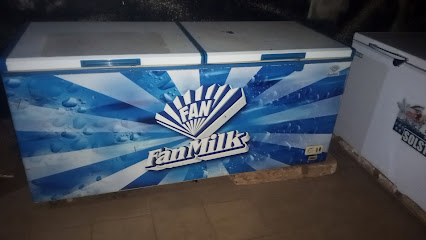
ESOP MANGO
Discover the essence of healthy living at ESOP MANGO, your go-to organic food store in the heart of Mango, Togo.
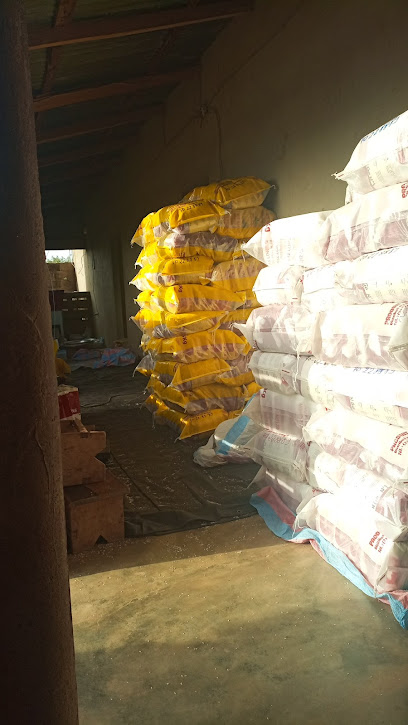
Kambarassou Diallo
Experience the rich flavors of local coffee at Kambarassou Diallo, a cozy haven in Mango, Togo, perfect for relaxation and cultural immersion.

Zongo
Discover the essence of Mango at Zongo, your go-to general store for authentic local crafts and unique souvenirs.

Essential bars & hidden hideouts
Bar La Fierté
Experience the best of Togolese and international cuisine at Bar La Fierté, a vibrant bar and restaurant in the heart of Lomé.
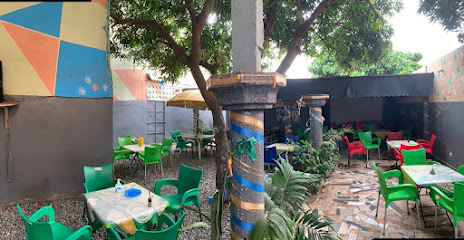
Douane De Mango
Experience the authentic taste of Togo at Douane De Mango, where local flavors and warm hospitality meet in an inviting atmosphere.
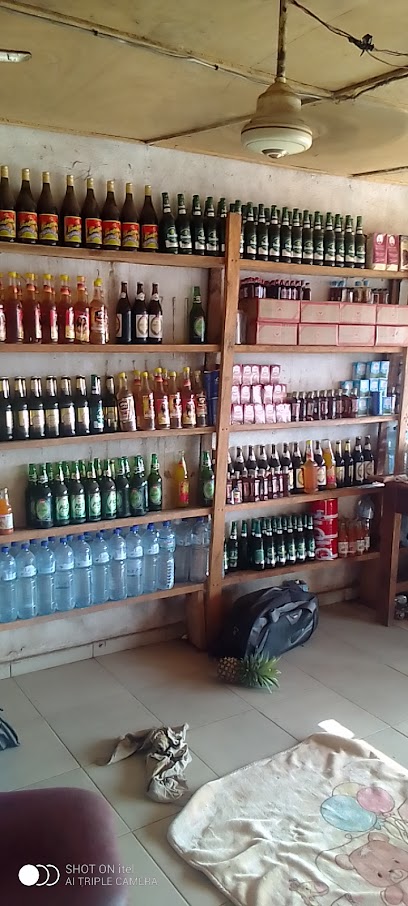
Bar La paix
Discover the charm of Mango at Bar La Paix, a cozy bar offering local drinks, live music, and a friendly atmosphere for travelers.
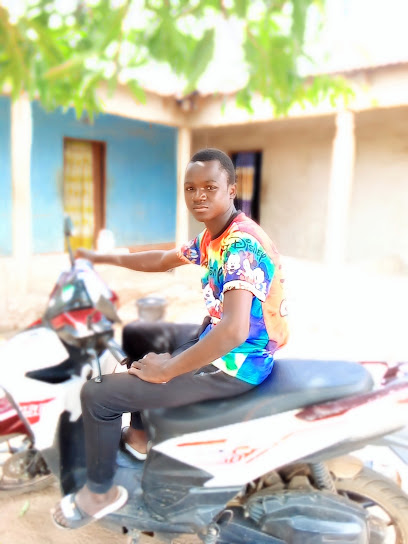
BAR RESTAURANT
Discover the vibrant BAR RESTAURANT in Mango, where local flavors meet a lively atmosphere perfect for socializing and relaxation.

FOUFOU BAR - CHEZ KOGNAN
Discover the authentic flavors of Togolese cuisine at Foufou Bar - Chez Kognan in Mango, where every dish tells a story.

The Seven Date Lounge Bar
Discover the lively atmosphere and diverse drink selection at The Seven Date Lounge Bar in Kara, Togo, where locals and tourists meet.
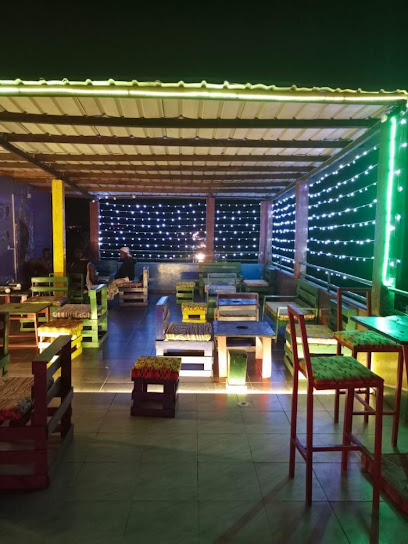
360 Degrees Bar Resto
Enjoy the lively atmosphere and delicious cuisine at 360 Degrees Bar Resto in Lomé, a perfect blend of local and international flavors.
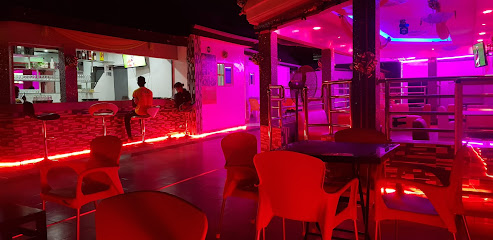
RED SPACE KARA
Discover Red Space Kara: A vibrant cocktail bar in Kara, Togo, offering an exquisite selection of drinks and a lively atmosphere for all.
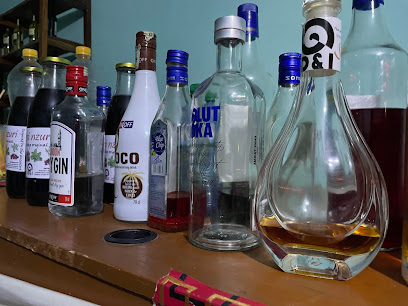
morning star bar
Experience the vibrant nightlife and local culture at Morning Star Bar in Ghana, where refreshing drinks and great company await.
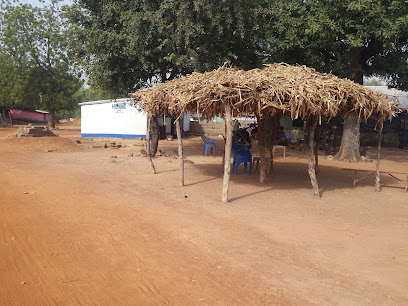
STEP WISE CORNER BAR
Experience the vibrant nightlife of Nalerigu at Step Wise Corner Bar, where local drinks and a friendly atmosphere await.
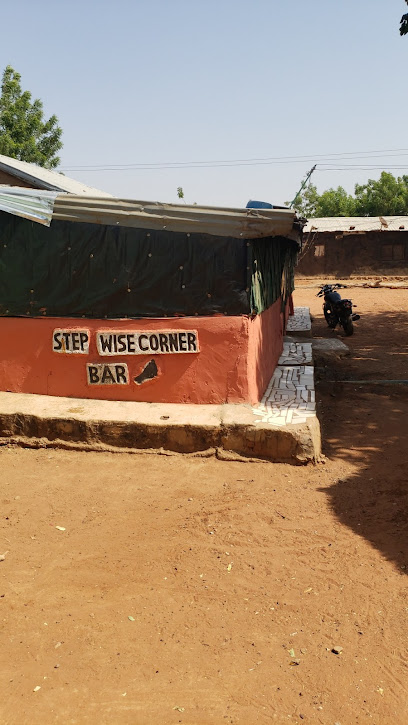
CHILL BAR, CHEREPONI
Experience Chill Bar in Chereponi: a vibrant bar with refreshing drinks, friendly service, and stunning views by the dam.
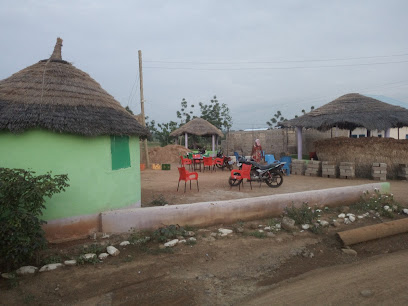
Hilltop Spot
Experience the beauty of Chereponi at Hilltop Spot, where breathtaking views meet a relaxing bar atmosphere perfect for unwinding.
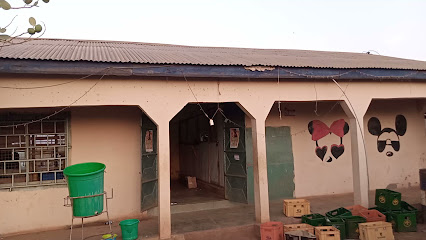
MANGO Délice
Discover MANGO Délice, where local flavors meet culinary artistry in a warm and welcoming setting in Mango.

Bar Kilimandjaro
Experience the vibrant atmosphere of Bar Kilimandjaro in Gando, where lively nights and local flavors come together for an unforgettable experience.
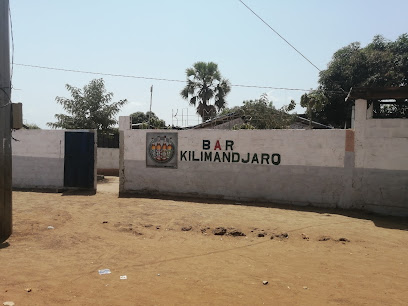
Local Phrases about Mango
-
- HelloAkwaaba
[ak-waa-ba] - GoodbyeDaalɔ
[daa-loh] - YesYoo
[yo] - NoAyi
[eye] - Please/You're welcomeKɛkɛ
[ke-kay] - Thank youAkpe
[ak-pay] - Excuse me/Sorryɖɔ
[doh] - How are you?Ɖe le?
[dhe lay] - Fine. And you?Aɖe. Na wò?
[a-dhe. nah woh] - Do you speak English?Ɖe ɖo ŋlɛsi gbe wò?
[dhe do eng-lay-see gbeh woh] - I don't understandMi tɔwoa
[mee toh-woh-ah]
- HelloAkwaaba
-
- I'd like to see the menu, pleaseMi ɖe xɔxɔɖo alo, blema
[mee deh choh-choh-doh ah-loh, bleh-mah] - I don't eat meatMi aƒe ɖe ɖa
[mee ah-fay deh dah] - Cheers!Draa!
[drah] - I would like to pay, pleaseMi ɖe wò alo, blema
[mee deh woh ah-loh, bleh-mah]
- I'd like to see the menu, pleaseMi ɖe xɔxɔɖo alo, blema
-
- Help!Eyi!
[ay-yee] - Go away!Wò ɖe
[woh deh] - Call the Police!Ʋlɔ wò tɔme
[uh-loh woh toh-meh] - Call a doctor!Ʋlɔ wò dzɔtɔ
[uh-loh woh dzoh-toh] - I'm lostMi tso
[mee tsoh] - I'm illMi afɔ
[mee ah-foh]
- Help!Eyi!
-
- I'd like to buy...Mi ɖe wò...
[mee deh woh...] - I'm just lookingMi aɖe ɖe ɖe
[mee ah-dhe deh deh] - How much is it?Blɔ nɔ wò?
[bloh noh woh] - That's too expensiveƲlɔ wò gbɔ gbɔ
[uh-loh woh gboh gboh] - Can you lower the price?Wò ɖe fɛ fɔ gbɔ
[woh deh feh foh gboh]
- I'd like to buy...Mi ɖe wò...
-
- What time is it?Ʋlɔ nɔ wò?
[uh-loh noh woh] - It's one o'clockƲlɔ nɔ ɖeka
[uh-loh noh dheh-kah] - Half past (10)Ʋlɔ nɔ dumi (10)
[uh-loh noh doo-mee (10)] - MorningDzo
[zoh] - AfternoonƲlu
[uh-loo] - EveningƲlɔ
[uh-loh] - YesterdayDzɔɖi
[dzoh-dhee] - TodayDzɔ
[dzoh] - TomorrowDzu
[dzoo] - 1Ɛɖeka
[eh-dheh-kah] - 2Ɛɖea
[eh-dheh-ah] - 3Ɛɖeɖe
[eh-dheh-dheh] - 4Ɛɖelɔ
[eh-dheh-loh] - 5Ɛɖeka ɖea
[eh-dheh-kah dheh-ah] - 6Ɛɖeka ɖeɖe
[eh-dheh-kah dheh-dheh] - 7Ɛɖeka ɖelɔ
[eh-dheh-kah dheh-loh] - 8Ɛɖeaɖea
[eh-dheh-ah-dheh-ah] - 9Ɛɖea ɖeka
[eh-dheh-ah dheh-kah] - 10Ɛɖea ɖea
[eh-dheh-ah dheh-ah]
- What time is it?Ʋlɔ nɔ wò?
-
- Where's a/the...?Ʋlɔ wò...
[uh-loh woh...] - What's the address?Ebe ɖeka?
[eh-beh dheh-kah] - Can you show me (on the map)?Wò ɖe ɖe wò (ɖe le)
[woh deh deh woh (deh lay)] - When's the next (bus)?Ʋlɔ nɔ ɖe ŋutɔ (bus)?
[uh-loh noh deh n-goo-toh (bus)] - A ticket (to ....)Ʋlɔ nɔ fɔkɛ (to ....)
[uh-loh noh foh-keh (to ....)]
- Where's a/the...?Ʋlɔ wò...
History of Mango
-
Mango, a town situated in the northern part of Togo, has a rich history that dates back to pre-colonial times. The area was originally settled by various ethnic groups, including the Moba, who played a significant role in the cultural formation of the region. These early settlers established agricultural communities, leveraging the fertile land along the Oti River to grow crops and raise livestock.
-
In the late 19th century, Togo became a German protectorate, known as Togoland. Mango, due to its strategic location near the Oti River, became an important administrative and military post for the Germans. They built infrastructure, including roads and buildings, some remnants of which can still be seen today. The colonial period introduced new governance systems and economic practices that would shape Mango's development for years to come.
-
Following World War I, Togoland was divided between the British and the French. Mango came under French control, and this period saw further infrastructural development and integration into the colonial economy. The local population engaged in resistance movements that contributed to the broader push for independence. Togo eventually gained independence from France in 1960, and Mango began to evolve within the context of a new, sovereign nation.
-
The cultural tapestry of Mango is vibrant and diverse, influenced by its various ethnic groups, including the Moba, Gourma, and Kotokoli. Traditional festivals such as the Dipo and Kpessosso are celebrated with enthusiasm. These events feature traditional music, dance, and rituals that offer a glimpse into the rich cultural heritage of the region. The local markets are also a hub of cultural exchange, where artisans sell handmade crafts and traditional foods.
-
In recent decades, Mango has seen significant modernization efforts, including improvements in education, healthcare, and infrastructure. However, the town also faces challenges such as economic disparities and the impact of climate change on agriculture. Despite these challenges, Mango remains a vibrant community with a strong sense of identity and resilience, continually adapting to the changing times while preserving its historical and cultural heritage.
Mango Essentials
-
Mango is located in the northern region of Togo. The nearest international airport is Gnassingbé Eyadéma International Airport in Lomé, approximately 600 kilometers away. From Lomé, you can take a domestic flight to Niamtougou International Airport, which is closer to Mango, or travel by road. Buses and private taxis are available for the journey, which typically takes around 8-10 hours by road.
-
In Mango, transportation options include local taxis and motorcycle taxis (zemidjans). These are readily available and reasonably priced. For longer trips, you can hire a private car or use intercity buses that connect Mango to other major towns and cities in Togo. Walking is also a viable option for exploring the town center.
-
The official currency is the West African CFA franc (XOF). Credit cards are not widely accepted, so it's advisable to carry cash. There are a few ATMs in Mango, but it is wise to withdraw sufficient cash in larger cities like Lomé or Kara before traveling. Currency exchange services are available, but rates might be better in bigger cities.
-
Mango is generally safe for tourists, but standard precautions should be taken. Avoid walking alone at night and be cautious in crowded places to prevent pickpocketing. There are no specific high-crime areas targeting tourists, but staying vigilant is always recommended. Keep your valuables secure and stay aware of your surroundings.
-
In case of emergency, dial 117 for police assistance or 118 for fire services. For medical emergencies, the local hospital in Mango can provide basic medical care. It is advisable to have travel insurance that covers medical emergencies. Pharmacies are available for minor health issues and over-the-counter medications.
-
Fashion: Do dress modestly to respect local customs. Avoid wearing revealing clothing. Religion: Do respect local religious practices and traditions. Remove your shoes when entering places of worship. Public Transport: Do be polite and patient when using public transport. Don't argue with drivers or other passengers. Greetings: Do greet people with a handshake or a polite nod. Don't ignore greetings, as it is considered rude. Eating & Drinking: Do try local foods and accept food offerings graciously. Don't refuse hospitality, as it is considered impolite.
-
To experience Mango like a local, visit the local markets where you can buy fresh produce and traditional goods. Engage with locals, as they are often friendly and willing to share stories about their culture and history. Don't miss the nearby Oti River, which offers beautiful scenery and opportunities for fishing. Also, try the local dish 'fufu' with a variety of stews for an authentic culinary experience.
Trending Landmarks in Mango
-
Monument de l'independance
-
Akodessewa Fetish Market
-
Palais de Lomé
-
TATA PARK
-
Fauna Cultura
-
Cascade de Kpimé
-
Lake Togo
-
Centre Culturel Denyigba
-
International Museum of the Gulf of Guinea
-
Riding Club Togo
-
Faille d'Aledjo
-
Cascade de Womé
-
cascade de Yikpa
-
Koutammakou, the Land of the Batammariba
-
Hospital of Hope
Nearby Cities to Mango
-
Things To Do in Ouagadougou
-
Things To Do in Ziniaré
-
Things To Do in Atakpamé
-
Things To Do in Wa
-
Things To Do in Koudougou
-
Things To Do in Kpalimé
-
Things To Do in Notse
-
Things To Do in Niamey
-
Things To Do in Ho
-
Things To Do in Lokossa
-
Things To Do in Sunyani
-
Things To Do in Kumasi
-
Things To Do in Aneho
-
Things To Do in Ouahigouya
-
Things To Do in Ouidah







